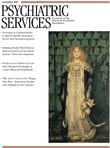Knowing of my penchant for detective stories, Dr. Geller assigned this book to me as "summer reading." After several interrupted attempts to get beyond the first half dozen pages, I realized this book was not a detective story or light summer reading and that my detection task was to understand the author through his use of words, which convey his inner life and function.
This is a book of words, symbols, and rhythmic, musical, and visual impressions. There is no linear or circuitous plot or characterizations often found in novels but rather a stream of consciousness with idiosyncratic and even neologistic use of language and imagery. The publisher informs us that at the time of writing the author was a 20-year-old autistic savant, who had written over 20 books previously, although Scholar by the Warsaw Fire is his first publication. Described as living out of a car and working minimal-wage menial jobs, his primary goal is to struggle against the "muteness and maliciousness" of an unachieved goal of returning to college.
Although billed as a novel, the book is a collection of separate short stories, which are chapters taken from earlier unpublished novels and arranged in chronological historical order. Each narrator, who seems to be a stand-in for the author, interweaves history with his world view in flowing, symbolic, and alliterative language that is interspersed with poetry. Issues that are addressed concern the conflict between life and death, peace and war, and slavery and freedom. The author also includes aspects of Judaism—tradition, faith, relationship with God, and especially the trials and tribulations imposed upon the Jewish people. The endings of each story are not neat conclusions in the usual sense of the word but rather interruptions that in themselves are thought provoking. The introduction and afterword offer explanations of the author's thinking, and they underscore the severe cognitive challenges that impede understanding of his message.
The first vignette is set in Roman times, with the main character—the sole Roman survivor of a battle between Romans and Jews—named Uriahkles wandering near death with painful memories of battles and loss and wistful memories of a warm childhood. Rescued by a peace-seeking physician, Uriahkles becomes a symbol of Roman indestructibility and is rewarded by being appointed procurator of Judea. Eventually after the destruction of the temple, he learns of his Hebrew roots. The historical descriptions and interactions are presented in an alliterative and florid confluence of words that is both distracting and engaging.
Similar themes and language are experienced in the next four stories. The story that the book takes its title from has the main character living in Czarist Russia, contemplating community destruction and personal loss and an impossible choice reminiscent of more modern Holocaust experiences. A haunting description follows of grief and loss, blood and tears, birth and death, hope and despair, and survival and redemption. These seize the reader, forcing a personal and painful visualization of a time and scene as well as moral dilemmas recaptured in the 20th century.
Equally compelling is the first-person story of the author in school. Issues of family suffering, isolation, and learning have been alluded to in previous chapters. But the specifics of a harsh childhood, loss, his father's suicide, and the pain of the outsider who is perceived as different but wants to be accepted and recognized is particularly moving. The author captures this in his comments for publication: "The irony of my own life—enduring much pain while embracing the 'gift' of savant autism—allows me to engage the world as one who knows he is an innovator and iconoclast." The final words of this chapter, "I was about to make a friend," reflect his yearning and offer hope.
This is a difficult book—offering an intense and challenging look at the inner world of an intelligent, creative, and challenged young man. The painful experiences of the author, his underlying cognitive as well as emotional disabilities, are moving and thought provoking. As a psychiatrist, I found myself examining the symbolism and structure of his thinking, wondering about the diagnosis and possible benefit of treatment, as well as issues of adaptation and recovery.
I recommend this book to colleagues—to read, reread, marvel, be moved, empathize, and appreciate.

